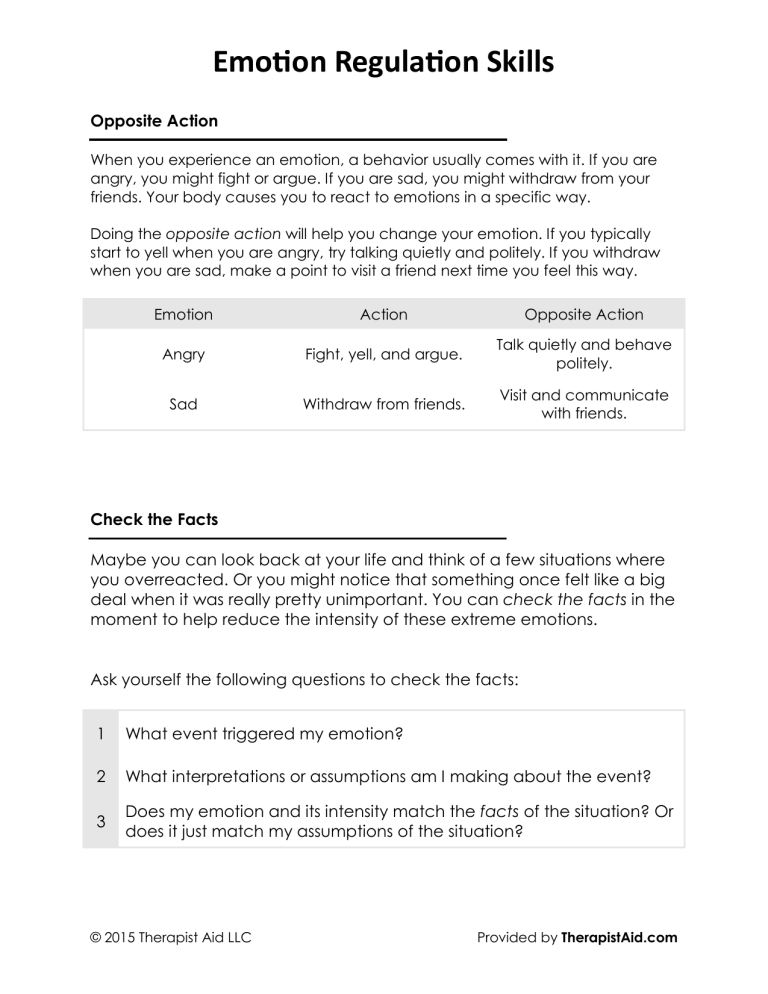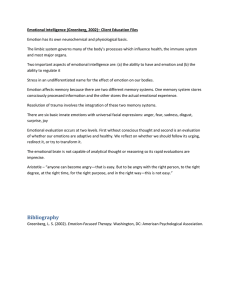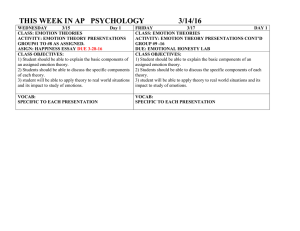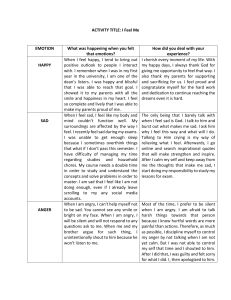
Emotion Regulation Skills Opposite Action When you experience an emotion, a behavior usually comes with it. If you are angry, you might fight or argue. If you are sad, you might withdraw from your friends. Your body causes you to react to emotions in a specific way. Doing the opposite action will help you change your emotion. If you typically start to yell when you are angry, try talking quietly and politely. If you withdraw when you are sad, make a point to visit a friend next time you feel this way. Emotion Action Opposite Action Angry Fight, yell, and argue. Talk quietly and behave politely. Sad Withdraw from friends. Visit and communicate with friends. Check the Facts Maybe you can look back at your life and think of a few situations where you overreacted. Or you might notice that something once felt like a big deal when it was really pretty unimportant. You can check the facts in the moment to help reduce the intensity of these extreme emotions. Ask yourself the following questions to check the facts: 1 What event triggered my emotion? 2 What interpretations or assumptions am I making about the event? 3 Does my emotion and its intensity match the facts of the situation? Or does it just match my assumptions of the situation? © 2015 Therapist Aid LLC Provided by TherapistAid.com Emotion Regulation Skills P.L.E.A.S.E. Your body and mind are closely linked, and the health of one directly affects the other. An unhealthy body will make it difficult to manage your emotions. The acronym “P.L.E.A.S.E.” can be used to help you remember important aspects of this connection. PL E A S E Treat Physical Illness Eat Healthy Avoid Mood-Altering Drugs Sleep Well Exercise Paying Attention to Positive Events It’s only human—most people give more attention to the bad things than the good. If you hear ten compliments, and a single criticism, you’ll probably focus on the criticism. If you notice yourself focusing on the negative aspects of an experience, try to stop and refocus on the positive. Practice by doing a small positive activity every day while making a point to acknowledge the good parts (even if things aren’t perfect). Don’t let minor problems ruin the moment. Adding one or two positive activities won’t change your life, but over time the happiness they create will start to add up. Here are a few ideas for quick positive activities to get you started: Have a good, unrushed meal. Watch a movie. Visit a local attraction like a zoo or museum. Go for a walk. Have a picnic. Give yourself a relaxing night in. © 2015 Therapist Aid LLC Visit with friends or family. Put on headphones and do nothing but listen to music. Try a new hobby. Provided by TherapistAid.com




